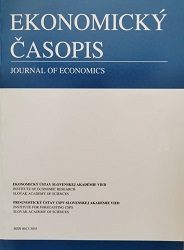Do Working Women Contribute to Higher Consumption Expenditures?
Do Working Women Contribute to Higher Consumption Expenditures?
Author(s): Wen Jun, Junaid Waheed, Hadi HussainSubject(s): Gender Studies, Behaviorism, Human Resources in Economy, Socio-Economic Research
Published by: Ekonomický ústav SAV a Prognostický ústav SAV
Keywords: working women; spending behavior; household expenditures; aggregate consumption; economic output; empirical analysis;
Summary/Abstract: Working women with their highly relative bargaining power and compulsive buying behavior can significantly affect household consumption expenditures. This study investigates the relationship between the number of working women and aggregate consumption expenditures. We examine the hypothesis that changes in the number of working women have a perceptible impact on per capita household consumption expenditures, by extension, on aggregate consumption. Using panel data for a set of The Organization for Economic Co-operation and Development (OECD) countries from 2000 – 2018, the outcomes of two-stage least squares and generalized method of moment estimations indicate that as the number of women increases, gross domestic consumption rises. The implied disparity in consumption propensities exists among different age groups of working women. These findings suggest the importance of considering working women’s spending behavior and household decision-making in planning for the development of gross domestic consumption and output.
Journal: Ekonomický časopis
- Issue Year: 69/2021
- Issue No: 04
- Page Range: 379-404
- Page Count: 26
- Language: English

